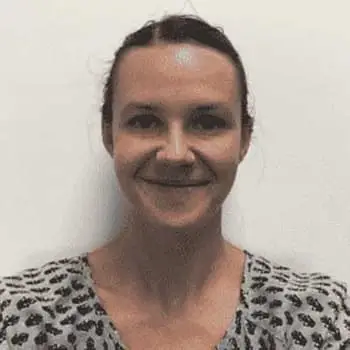Addiction to LSD can have serious long-term implications on a person’s life if left untreated. Learn more about LSD treatment and rehab options in South Florida.
Hallucinogenic drugs like LSD can drastically change how an individual perceives the world. For people who need LSD addiction help, finding the right treatment option can sometimes be difficult. It is even more difficult to wade through all the information and misinformation on the internet surrounding LSD.
There are many different potential LSD treatment options, including:
- Medically detoxing at a facility
- Participating in either an inpatient or outpatient rehabilitation program
- Receiving treatment for LSD addiction and any co-occurring mental health conditions
Some argue that LSD addiction is not as common as opioid or benzodiazepine addiction. People who are “addicted” to LSD may not be physically addicted to the drug, but rather addicted psychologically. Being psychologically addicted to LSD can have effects that are just as damaging as being physically addicted to prescription opioids.
Treatment Can Be Life Changing. Reach out today.

LSD Addiction Treatment Options
The severity of a person’s LSD abuse will often dictate the type of treatments that are specifically recommended to them by addiction specialists or medical professionals.
Each treatment program has certain benefits, though not all treatments will work or be beneficial for each person struggling with LSD addiction. Regardless of the treatment program, patients will learn important coping strategies that can be applied after rehab in their everyday lives.
LSD treatment can be individually tailored to a person’s mental and physical health needs. Additionally, treating co-occurring mental health conditions like depression or anxiety can help address the underlying causes of addiction and improve the chances of long-term recovery. Before any type of treatment begins, patients will receive a mental and physical health evaluation to assess the severity of their LSD addiction.
Medical Detox
A simple internet search with the phrase “drug detox in Florida” results in an overwhelming number of options. Even among the many detox centers in South Florida, how can potential patients and their loved ones decide which detox center is appropriate for treatment?
One of the first and perhaps most difficult steps in addiction recovery is to detox. In this case, detox means ridding the body of LSD. Some people choose to detox at home with no prescribed medication. However, it is highly recommended that people detox at a medical facility instead. Those who are able to use medication during detox at a facility, otherwise known as medical detox, are less likely to relapse on LSD than people who detox at home. Medical facilities have 24/7 support staff to assist patients during the entire withdrawal and detoxification process, which helps to prevent relapse.
Medically assisted detox is only the first step in the addiction recovery process, and medical detox alone is unlikely to keep a person from relapsing on LSD. A facility must have policies in place that make sure patients remain engaged in the recovery process. Detoxing only helps a person completely get rid of any LSD in their body, but it does not address the underlying causes of addiction. In addition, addressing the causes of psychological LSD addiction requires multiple treatment modalities. These can include:
- Partial hospitalization programs
- Intensive outpatient rehab programs
- Outpatient rehab
- Inpatient residential rehabilitation programs
- Dual diagnosis
- Other potential addiction therapies
Inpatient
Inpatient rehab is a form of residential rehab where patients stay at a medical facility for an extended period of time. This type of rehab is recommended for individuals who may have had difficulty stopping LSD, have already detoxed from LSD or have relapsed multiple times. Inpatient rehab facilities offer 24/7 supervised care from addiction specialists and a team of medical professionals. Depending on the facility, patients will have an individualized treatment plan and multiple health evaluations over the course of their stay. Inpatient rehab also features critical individual and group therapy. Some facilities also offer nutritional counseling and various recreational therapies.
Outpatient
Another treatment alternative is known as outpatient drug rehab. Outpatient rehab is very similar to inpatient rehab, but patients return home in the evenings rather than stay at the facility overnight. There are many outpatient rehab centers in South Florida that offer many of the same features as inpatient rehab. This type of rehab is generally recommended for individuals who have already detoxed from LSD and do not need to be supervised 24/7. If someone receives medication or sees a therapist at an outpatient facility, their treatments will be given during the day rather than in the evening. Patients meet with medical staff and therapists while at the facility and have medical evaluations for the duration of their outpatient stay.
Dual Diagnosis
Dual diagnosis refers to more than one medical diagnosis. For example, people struggling with LSD addiction will often be asked about other mental health conditions they may have, such as depression or anxiety. Thus, a dual diagnosis is also referred to as a co-occurring disorder. Many dual diagnosis treatment centers in Florida offer treatment for LSD addiction and co-occurring mental health conditions. LSD addiction and other forms of drug addiction are closely connected with a person’s mental health. It is possible that a person’s psychological addiction to LSD is at least partly caused by their mental state.
A person’s mental health can impact whether or not they make a full recovery from LSD addiction. If a person struggling with LSD addiction is also diagnosed with a mental health condition, they may be prescribed medication or behavioral therapy. Examples of potential co-occurring disorders with LSD addiction may include:
- Depression or anxiety disorders
- Acute stress disorder (ASD)
- Post-traumatic stress disorder (PTSD)
- Attention-deficit hyperactivity disorder (ADHD)
- Mood regulation disorders
- Psychotic disorders
- Personality disorders
Nearly 60% of individuals with a substance use disorder like LSD addiction also have a co-occurring mental health condition. Treating both is essential for the health of the patient and their ability to make a full recovery from drug addiction.
Duration of Treatment
Particularly for individuals struggling with LSD use, breaking a psychological addiction can be just as challenging as breaking a physical addiction. The length of rehab is highly dependent on the patient, the opinion of medical staff, the dose, frequency of use and how many times they have relapsed. In addition, the presence or lack of an outside support system can influence the type of treatment a patient chooses.
After a medical evaluation, staff will determine whether the patient should go through detox as well as enroll in short-term or long-term drug rehab. Although the rehab timeline will be different for everyone, the typical treatment length of different programs include:
Detox – One to two weeks
Partial Hospitalization Programs – Several weeks to a month, which is generally less time than outpatient or inpatient rehab
Inpatient Rehab – 30 to 90 days, sometimes longer (six to 12 months)
Outpatient Rehab – 30 to 90 days, sometimes longer (six to 12 months)
Addiction Therapies – During rehab and indefinitely (ongoing cognitive behavioral therapy, yoga, meditation, etc.)
Life after Rehab (aftercare) – Indefinitely
More medical professionals are starting to view addiction as a chronic disease that must be managed in more effective ways. Some studies suggest that longer treatment programs for addiction are more effective for long-term sobriety.
Life After Rehab
Another critical component of the recovery process is preparing for life after rehab. Drug addiction recovery is an ongoing and dynamic process that does not end with rehab. Outside of rehab, there are many forms of aftercare that encourage people to get involved in a drug recovery program. These include 12-step programs, community support groups, and similar resources.
Making sure a person has a strong support group as well as effective coping strategies is critical for maintaining sobriety. Of course, medical detox and different forms of rehab are not a “cure” for addiction. Addiction can be thought of as a chronic disease, not unlike diabetes that must be carefully considered and potentially treated for the rest of someone’s life.
Relapse after rehab statistics suggest that around 50% of people relapse after substance use disorder treatment. Relapsing is very common, and it’s even a normal part of recovery. It’s important to understand that if a person relapses on LSD, it does negate all their previous progress.
How Much Does Rehab Cost?
Just like it is difficult to predict the length of treatment, it is also difficult to estimate the cost of rehab. Drug rehab costs vary widely depending on the facility, the rehab program, whether a patient must detox and many other factors.
Every year, the economic cost of substance use disorders in the United States is nearly $600 billion. However, designing the most effective treatment for substance use disorders may one day help mitigate these costs. Even in 2006, rehab programs on average ranged from $1,500 to $10,000 per patient. By today’s standards, this cost has grown, but it can still vary depending on whether the medical facility is private or public. As a rule of thumb, publicly funded rehab facilities are less expensive than private or luxury rehab options. Even still, public institutions may charge upwards of $8,000 per patient, while private facilities range from $20,000 to $60,000.
Does Insurance Cover Rehab?
Some facilities accept certain health insurances while other facilities in the same area do not. Regardless of whether insurance is accepted as a person’s facility of choice, drug rehab for LSD addiction can be expensive. If a person has health insurance, the easiest way to determine if it is accepted at their preferred facility is to speak with a representative. Alternatively, individuals can call their insurance company and ask for a list of drug rehab facilities that accept their insurance.
What about individuals who wish to go to drug rehab without insurance? Fortunately, there are plenty of ways to finance rehab beyond health insurance. Alternative payment options may include:
- Financing rehab with a person’s own funds or savings
- Paying with private funds
- Fundraising, such as crowdfunding on the internet
- Getting grants or scholarships for treatment through the federal government or private funding sources
- A short-term or long-term payment plan with the facility
- Applying for government aid or assistance
- Local and state-funded addiction programs
Finding LSD Addiction Treatment
For people seeking LSD addiction help, there are many important considerations regarding LSD addiction treatments. A person struggling with LSD addiction and their loved ones may want to consider a facility based on:
- Different amenities offered (a gym, a swimming pool, yoga classes, etc.)
- How close the facility is to their home
- How expensive different types of rehab programs are
- Whether the facility they choose accepts their insurance
- If their facility specializes in LSD addiction
- If they enjoy their interactions with the medical staff and addiction specialists
- If they feel comfortable after a tour of the facility
- If they feel that the rehab programs place special emphasis on aftercare and support systems after the program ends











